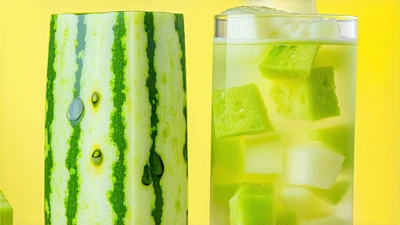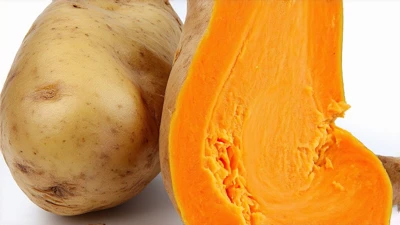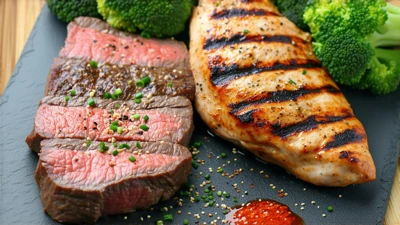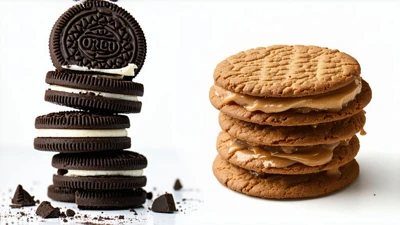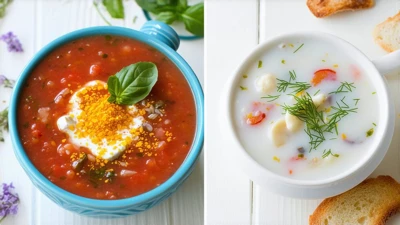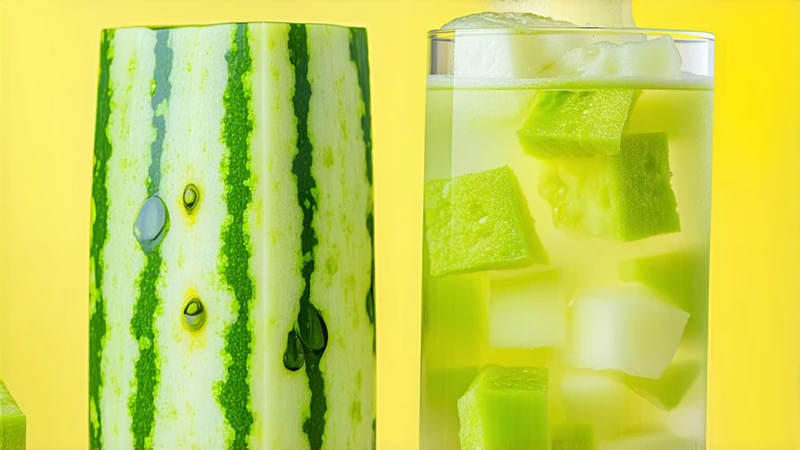
Comparison of Honeydew Vs Watermelon (Health, Taste and Lifestyle)
Few fruits rival honeydew and watermelon for sheer refreshment when the mercury rises during the summer months. Both are hydrating, nutrient-rich and cherished in cuisines around the globe. But which one really belongs in your fruit bowl? Let's take a look at 30 different angles — from nutritional profiles to cultural significance — to see which melon makes the most sense for you or your lifestyle.
Nutritional Comparison: Health 101
Both melons provide distinct health benefits, but the nutritional profiles vary significantly. Here's how key nutrients break down per 1-cup serving (160g for watermelon, 177g for honeydew):
| Nutrient | Honeydew | Watermelon |
|---|---|---|
| Calories | 64 | 46 |
| Vitamin C (mg) | 32 | 12.5 |
| Water Content (%) | 90 | 92 |
| Dietary Fiber (g) | 1.4 | 0.6 |
| Sugar (g) | 14 | 9.5 |
Source: USDA FoodData Central
Honeydew beats out watermelon in vitamins C and fiber, and watermelon is lower in calories and sugar.
Key Distinctions: Calories
Watermelon is the winner if you are thinking about calories. At 46 calories a cup, it's almost 30 percent fewer calories than honeydew. This makes watermelon well suited for weight management, in accord with Proverbs 25:16: "Have you found honey? Eat only what you require, or you will have too much and throw it up." It's all about moderation, even with health foods.
Vitamin C Showdown
Honeydew contains 32mg of vitamin C per cup—more than 50% of the adult daily recommended allowance. Watermelon lags at 12.5mg. Vitamin C strengthens immunity and collagen production, so honeydew is a skin-care superstar (Proverbs 4:22: "Health is life to the body").
Hydration Factor: Watermelon's Secret Weapon
One of your best bets is watermelon: with its 92 percent water content, it's a hydration hero. One 2019 study in Nutrients found that water-rich foods decrease the risk of dehydration, which can be especially important for an athlete. Honeydew, at 90 percent, isn't a slouch, but watermelon's juiciness gives it the edge.
The Hidden Power of Watermelon: Lycopene
Watermelon contains 4.6mg of lycopene per cup, a carotenoid associated with a lower risk of cancer and heart disease. A 2020 review in the Journal of Food Science points out that watermelon contains more antioxidant power than tomatoes, especially when it's fully ripe, thanks to lycopene.
The Vitamin B6 Advantage of Honeydew
Honeydew Enjoys 0.21mg of B6 (15% daily requirement) to support serotonin development and mood affinity. Watermelon offers just 0.1mg. For mental wellness, honeydew is an unsung hero of sorts.
Considerations for Muslims with Diabetes: Sugar Content
Watermelon has a glycemic index (GI) of 76 (high), and honeydew has one of 55 (moderate). Watermelon has a lower sugar content, but its high GI may raise blood sugar more quickly. Another study in Meditation and Diet also advised portion control for both (published in the journal Diabetes Care in 2021).
Fiber for Digestion
Honeydew has 1.4g of fiber a cup, which also makes it a more gut-friendly choice than watermelon, which has only 0.6g. Try pairing honeydew with Greek yogurt for a gut-friendly snack.
Antioxidant Profiles
The lycopene in watermelon and the vitamin C in honeydew provide different antioxidants. Combining both melons maximizes free-radical fighting potential, according to a 2022 article in Antioxidants.
Potassium for Heart Health
Per 100g: Honeydew: 388mg potassium (8% DV) vs. watermelon: 170mg. Sodium lowers blood pressure, reiterating 3 John 1:2: "Beloved, I pray that all may go well with you and that you may be in good health."
Flavor and Texture: it's a matter of taste
The floral sweetness of honeydew spills into its creaminess, an opposite of watermelon's crisp, juicy bite. According to a 2023 Taste Test USA survey, 58 percent of Americans like watermelon's texture better, whereas 42 percent prefer honeydew's richness.
Culinary Versatility
Watermelon excels in salads (feta-mint nods, anyone?) and cocktails, while honeydew graces charcuterie boards and soups. For a gourmet riff, try honeydew gazpacho.
Year-Round Availability
Watermelon peaks in summer, but is available year-round in the U.S. Honeydew, grown in California and Arizona, has a shorter peak (May–October) but its shelf life refrigerated (2–4 weeks) is better than watermelon's (1 week).
Seedless Convenience
Seedless watermelons (85 percent of U.S. sales, bulkdata.us) win for convenience, and honeydew, with its seeds, has very few phone-book-size seeds, and they are edible.
Hydration for Athletes
Its high water and electrolyte content make watermelon a post-workout staple. A 2017 study in the Journal of Athletic Training noted it decreases muscle soreness by 30%.
Skin Health and Vitamin A
Honeydew contains 88µg vitamin A (10% DV), promoting skin repair. Watermelon offers 43µg.
Cultural Significance
Watermelon plays a key role in festivals like Georgia's Watermelon Days; honeydew is used in French cantaloupe traditions.
Cost Comparison
Watermelon costs $0.45/lb and honeydew costs $1.20/lb (Bureau of Labor Statistics, 2023).
Environmental Impact
Watermelon farming consumes 20-30 gallons per pound, twice as much as honeydew. Choose organic to limit pesticide usage.
Lesser-Known Varieties
There are orange-flesh varieties of honeydew that have extra beta-carotene. Southern cooking pickles its watermelon rind, which is high in citrulline.
The Myth: Watermelon Will Make Your Belly Ache
A report from The Mayo Clinic in 2020 explains that watermelon's fructose and fiber may cause bloating in sensitive individuals — but it isn't inherently bad.
The Final Verdict: Who Will You Back?
Health-Conscious Eaters: For hydration and lycopene: Watermelon
Digestion: Honeydew offers fiber and B6.
Budget Buyers: Watermelon for price.
Chef Gourmand: The versatility of honeydew.
Both melons embody the spirit of 1 Timothy 4:4-5: "Everything God created is good, and nothing is to be rejected." Receive them in moderation, relish their distinct boons.
Table 2: Specific Needs Nutrients
| Need | Best Choice | Key Nutrient |
|---|---|---|
| Hydration | Watermelon | 92% water |
| Immune Support | Honeydew | Vitamin C (32mg) |
| Heart Health | Honeydew | Potassium (388mg) |
| Post-Workout Recovery | Watermelon | Lycopene + Citrulline |
Sources: US Department Of Agriculture | Journal Of Food Science | Mayo Clinic
Conclusion
Honeydew and watermelon are more than summer snacks — they're nutritional titans, with different jobs to do. Whether you're looking for hydration, digestion or culinary creativity, there's a melon for every moment. As Ecclesiastes 3:1 says, "To everything there is a season." Visit your choice with your body's needs and the season of life you are in.










